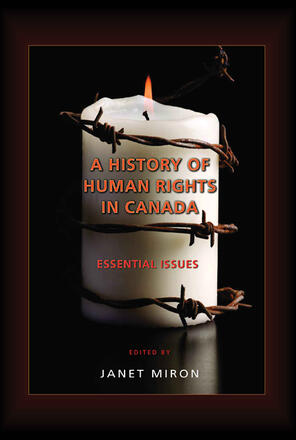
A History of Human Rights in Canada
Essential Issues
Description
Human rights, equality, and social justice are at the forefront of public concern and political debate in Canada. Global events – especially the “war on terrorism” – have fostered further interest in the abuse of human rights, especially when sanctioned or perpetuated by democratic governments. This groundbreaking contributed volume seeks to shed light on this topic by uniting original essays that examine the history of human rights in Canada.
Contributors explore a variety of themes integral to the post-confederation period, including immigration and ethnicity, gender, sexuality, class, disability, state formation, and provincial-federal relations. Three key issues emerge throughout: incidents of discrimination in both government and society, the efforts of human rights and civil liberties activists to create a more open and tolerant society, and the implementation of state legislation designed to protect or enhance civil rights.
Reviews
"With all of its plusses, this book will constitute a valuable contribution to Canadian Human Rights literature. It has the potential to become an important work in the growing field of human rights, and makes for a very good publication with cross-disciplinary appeal in areas like political science, sociology, philosophy, and history. "
— ?The Honourable Noel A. Kinsella, Speaker, Senate of Canada, Professor of Human Rights, past Director, Atlantic Human Rights Centre, St. Thomas University